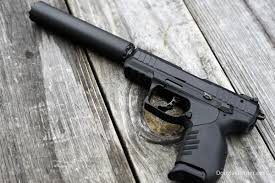The National Firearms Act (NFA) is really a significant bit of guidelines in the states that oversees the possession and move of some kinds of firearms. Enacted in 1934, the NFA was a reply to the increase of gangster abuse through the Prohibition age. Its primary aim ended up being to curtail using specific tools associated with illegal routines. Here is what you must know of the NFA:
Controlled Firearms: The NFA primarily focuses on firearms sorted as Headline II tools, such as machine weapons, quick-barreled rifles (SBRs), short-barreled shotguns (SBSs), suppressors (silencers), and harmful gadgets (such as grenades or huge-bore firearms). These firearms are at the mercy of stringent restrictions underneath the NFA.
Demands for Acquisition: Folks planning to own NFA firearms must comply with specific specifications, which include going through an extensive background examine, publishing fingerprints, and getting approval from the Bureau of Alcohol, Tobacco, Firearms, and Explosives (ATF). Furthermore, a $200 taxation stamp is needed for each and every NFA firearm shift, which behaves as a deterrent for relaxed acquisition.
Moves and Property: The NFA imposes tough restrictions on the transfer and thing of Headline II firearms. All moves of NFA things between folks or organizations needs to be authorized by the ATF and recorded from the correct paperwork. Ownership of your NFA firearm without the proper registration and acceptance is a government offense punishable by significant penalty charges.
Concurrence and Enforcement: Conformity with the NFA is very important for individuals who own or prefer to attain Headline II firearms. ATF conducts normal inspections and investigations to make certain concurrence with NFA polices. Infractions in the NFA may result in criminal costs, forfeiture of firearms, and big fees.
Exemptions and Lawful Loopholes: As the NFA imposes tough rules on Label II firearms, particular exemptions are present. For instance, firearms manufactured just before the enactment of your NFA are thought collectibles and so are exempt from its provisions. Moreover, particular firearms, like rifles and shotguns with barrels beyond the suggested duration, are not considered NFA goods.
In conclusion, the national firearms act takes on a crucial role in regulating the ownership and move of a number of firearms in the United States. Its procedures aim to balance open public protection concerns with the legal rights of law-abiding citizens to own firearms. Comprehending and complying together with the NFA’s polices are crucial for individuals active in the firearms industry or considering possessing Headline II firearms.
